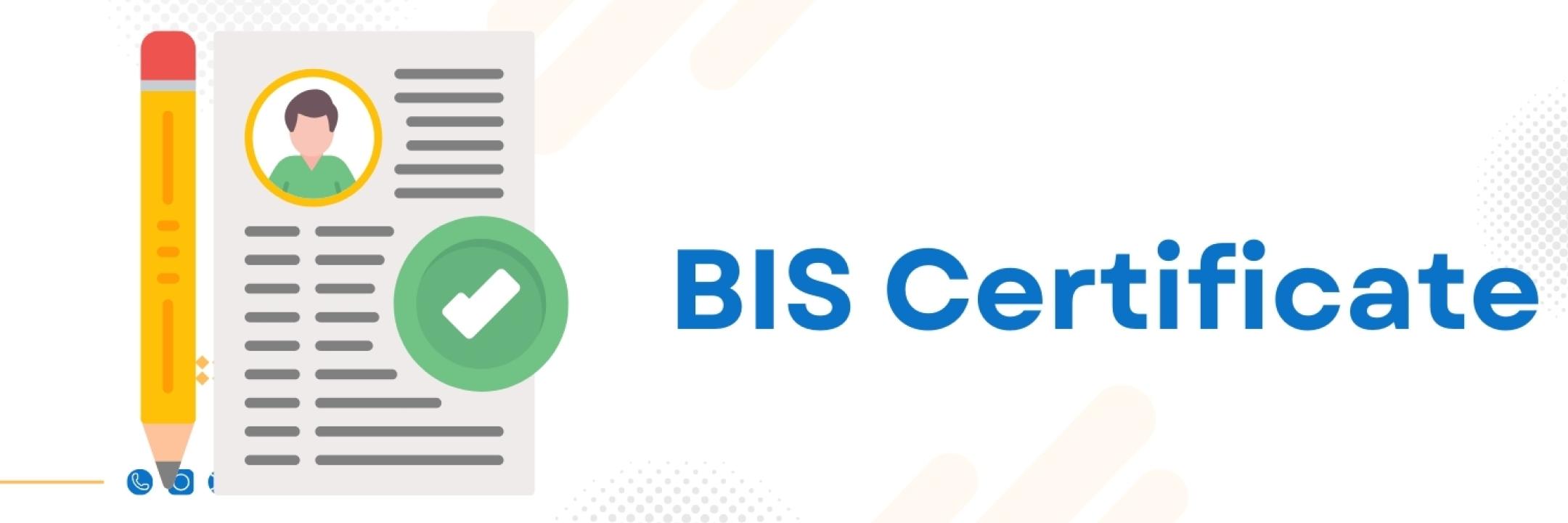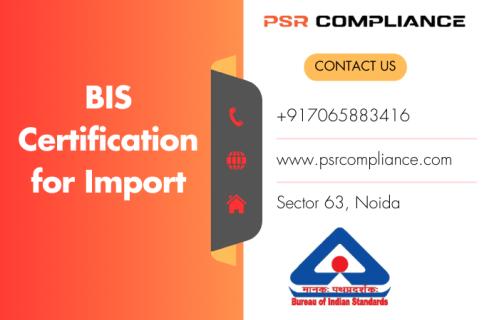In today's global market, safety and quality are key. Whether you're buying a pressure cooker, a smartphone, or even gold jewelry, there's a good chance it has a BIS mark on it. But what does that really mean?
The BIS certificate, issued by the Bureau of Indian Standards, is a stamp of approval that guarantees a product meets Indian safety and quality norms. For manufacturers, importers, and even consumers, knowing BIS certification can make a world of difference.
Introduction to BIS Certification in India
Importance of Standards in Manufacturing
Standards help confirm products are safe, reliable, and of good quality. They also make international trade easier and protect consumer interests. In India, one of the key bodies that defines and enforces standards is the Bureau of Indian Standards (BIS).
Overview of the Bureau of Indian Standards
The BIS is a national standard body of India, functioning under the Ministry of Consumer Affairs, Food & Public Distribution. Established in 1986 and revamped by the BIS Act, 2016, it regulates product standards and offers certification schemes.
Objectives of BIS Certification
Consumer Protection
The main goal of BIS certification is to protect Indian consumers by confirming that the goods they buy are safe and of high quality.
Confirming Product Quality and Safety
From electronics to construction materials, BIS confirms that products conform to safety norms and minimize risk to human life and health.
Legal Framework Behind BIS Certification
BIS Act, 2016
The BIS Act empowers the organization to set product standards, conduct audits, test samples, and issue certifications. It gives legal backing to enforce compulsory BIS certification for certain products.
Compulsory Registration Scheme (CRS)
CRS is a special scheme that mandates certification for specific products, especially electronics and IT goods, before they can be sold in India.
Who Needs a BIS Certificate?
Domestic Manufacturers
Indian manufacturers producing goods under categories listed by BIS must obtain certification before launching their products.
Foreign Manufacturers
Overseas companies that want to sell products in India must also apply for BIS certification and appoint an Authorized Indian Representative (AIR).
Importers and Traders
If you're importing products that fall under the mandatory list, you can't legally sell them in India without BIS registration.
Types of BIS Certification
ISI Mark Certification
ISI Mark Certification The ISI mark is used for products that meet Indian standards for industrial and consumer goods like cement, packaged water, or gas cylinders.
CRS (Compulsory Registration Scheme)
This applies mainly to electronics and IT products such as LED lights, mobile phones, and power banks. Manufacturers must register their products and submit them for lab testing.
Hallmarking for Jewelry
BIS also regulates the purity of gold and silver used in jewelry. Hallmarking confirms transparency and protects buyers from fraud.
Products That Require BIS Certification
•Electronics & IT Goods: Mobile phones, laptops, TVs, power banks
•Household Appliances: Refrigerators, washing machines, LED lights
•Construction Materials: Cement, steel rods, plastic pipes
•Food Packaging: Bottled water, kitchenware
•Jewelry and Precious Metals: Gold, silver ornaments
For a full list, check the official BIS website.
Benefits of BIS Certification
Market Access and Trust
Having a BIS certificate opens up new markets and builds trust among buyers and partners.
Consumer Safety Assurance
Certified products confirm that consumers are protected from harmful or defective goods.
Competitive Edge in Global Trade
For exporters, BIS certification boosts credibility and helps meet international requirements.
BIS Certification Process
Step-by-Step Application Procedure
1.Identify applicable standards for your product
2.Register online at the BIS portal
3.Submit documents including test reports
4.Product testing by BIS-approved labs
5.Inspection and audit of manufacturing unit
6.License issuance if all conditions are met
Document Requirements
•Factory registration proof
•Product technical details
•Test reports from BIS-approved labs
•Authorized Indian Representative (AIR) form for foreign entities
Fees and Timeline
BIS charges include application fees, lab testing costs, and inspection fees. The entire process typically takes 4-6 weeks, depending on product type and compliance readiness.
BIS Certification for Foreign Manufacturers
Appointing an Authorized Indian Representative (AIR)
Foreign applicants must designate a local representative responsible for coordination and compliance.
Sample Testing and Factory Inspection
Product samples are tested in BIS-approved labs, and in some cases, the manufacturing facility is inspected on-site.
How to Check BIS Certificate Online
Online Portal Usage
You can visit the BIS certification portal to search for certified products or verify if a particular license number is valid.
Verifying License Authenticity
Enter the BIS number or product name to check if it's genuine and valid.
Penalties for Non-Compliance
Legal Action and Fines
Selling uncertified or fake BIS-marked products can lead to hefty fines, legal action, or even imprisonment.
Product Recall and Ban
Non-compliant products may be banned from the market, and manufacturers may be asked to recall them immediately.
Common Challenges in BIS Certification
•Document errors and delays
•Mismatch with Indian standards
•Delays in lab testing
•Unfamiliarity with compliance process
Tips for Smooth BIS Certification Process
•Hire experienced BIS consultants
•Conduct pre-compliance testing
•Maintain proper documentation
•Know applicable Indian standards
Recent Updates in BIS Regulations
•More product categories like toys and helmets now fall under CRS
•Introduction of AI-based product tracking and audits
•Faster online application system
Final Remark
The BIS certificate isn’t just a bureaucratic requirement. It's a symbol of quality, safety, and trust. Whether you're a consumer, manufacturer, or importer, confirming BIS compliance is a step toward safer, more reliable products and greater market success.
FAQs About BIS Certificate
Q1: Is BIS certification mandatory in India?
Yes, for listed products under CRS or ISI scheme.
Q2: How long does BIS certification take?
It usually takes 4 to 6 weeks, depending on product and documentation.
Q3: What happens if I sell without BIS certification?
You could face fines, legal action, or a product ban.
Q4: Can foreign companies apply for BIS directly?
Yes, but they must appoint an Authorized Indian Representative (AIR).
Q5: How do I know if a product is BIS certified?
Look for the BIS mark or check the official BIS website.
Q6: Can BIS certification be revoked?
Yes, if products are found non-compliant or standards are violated.













